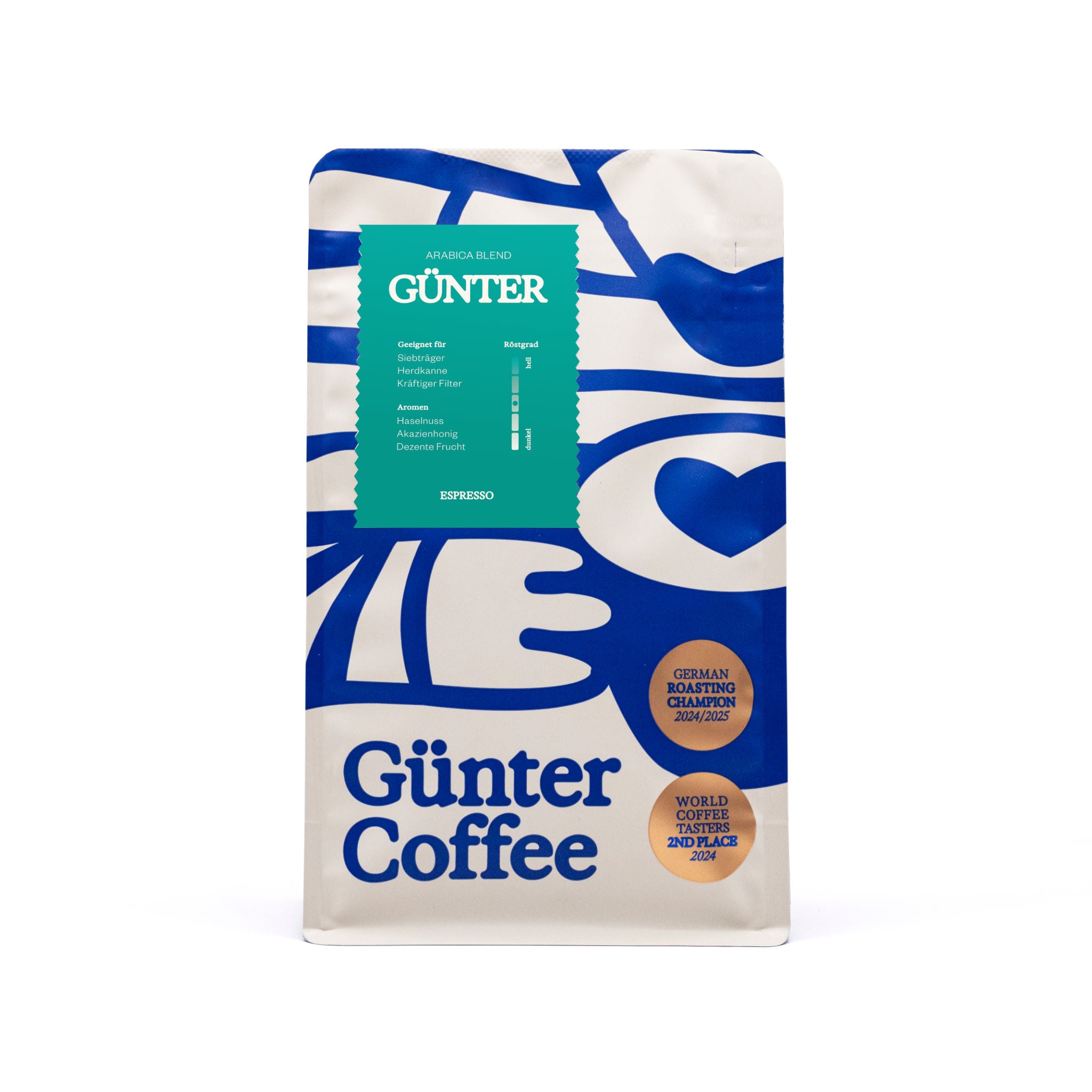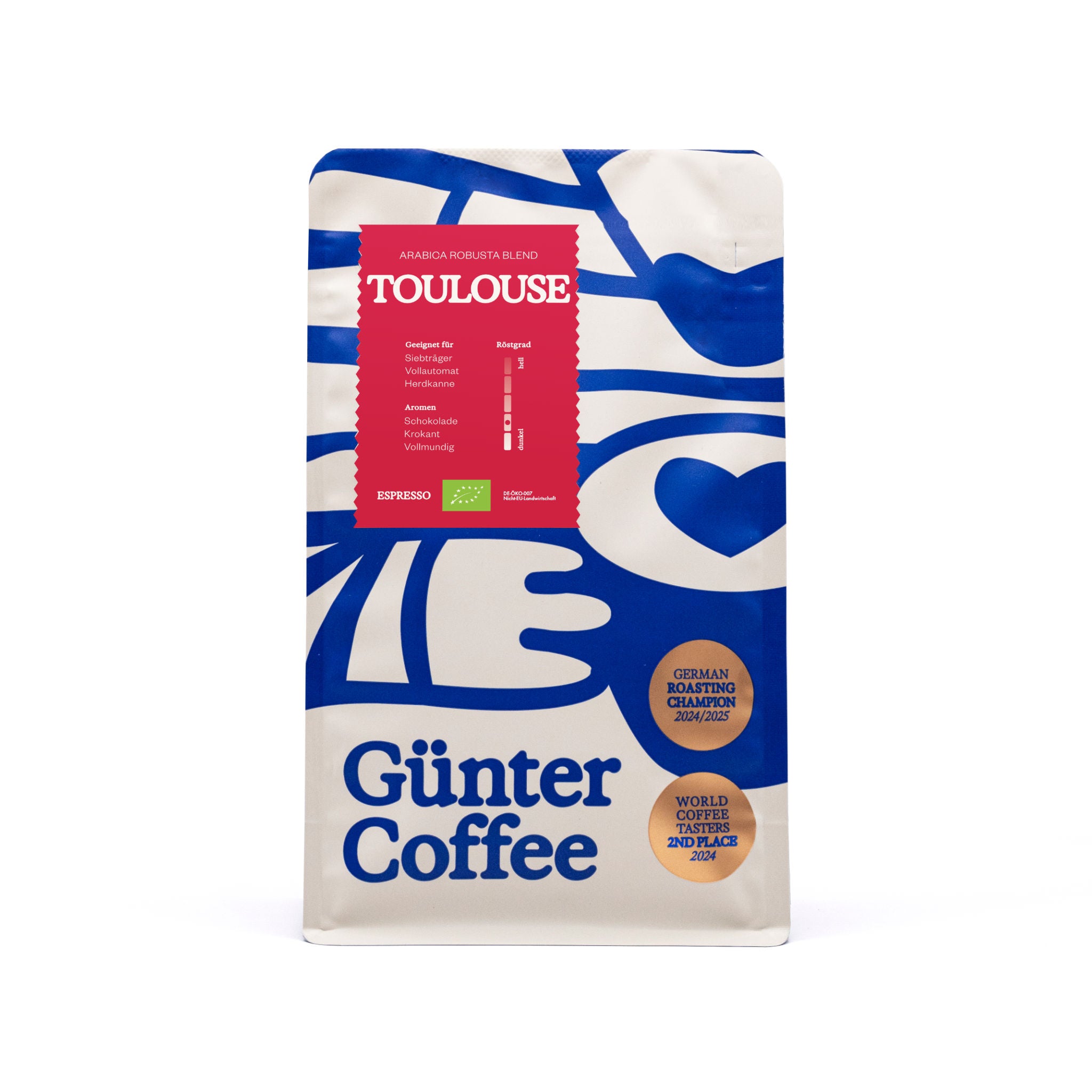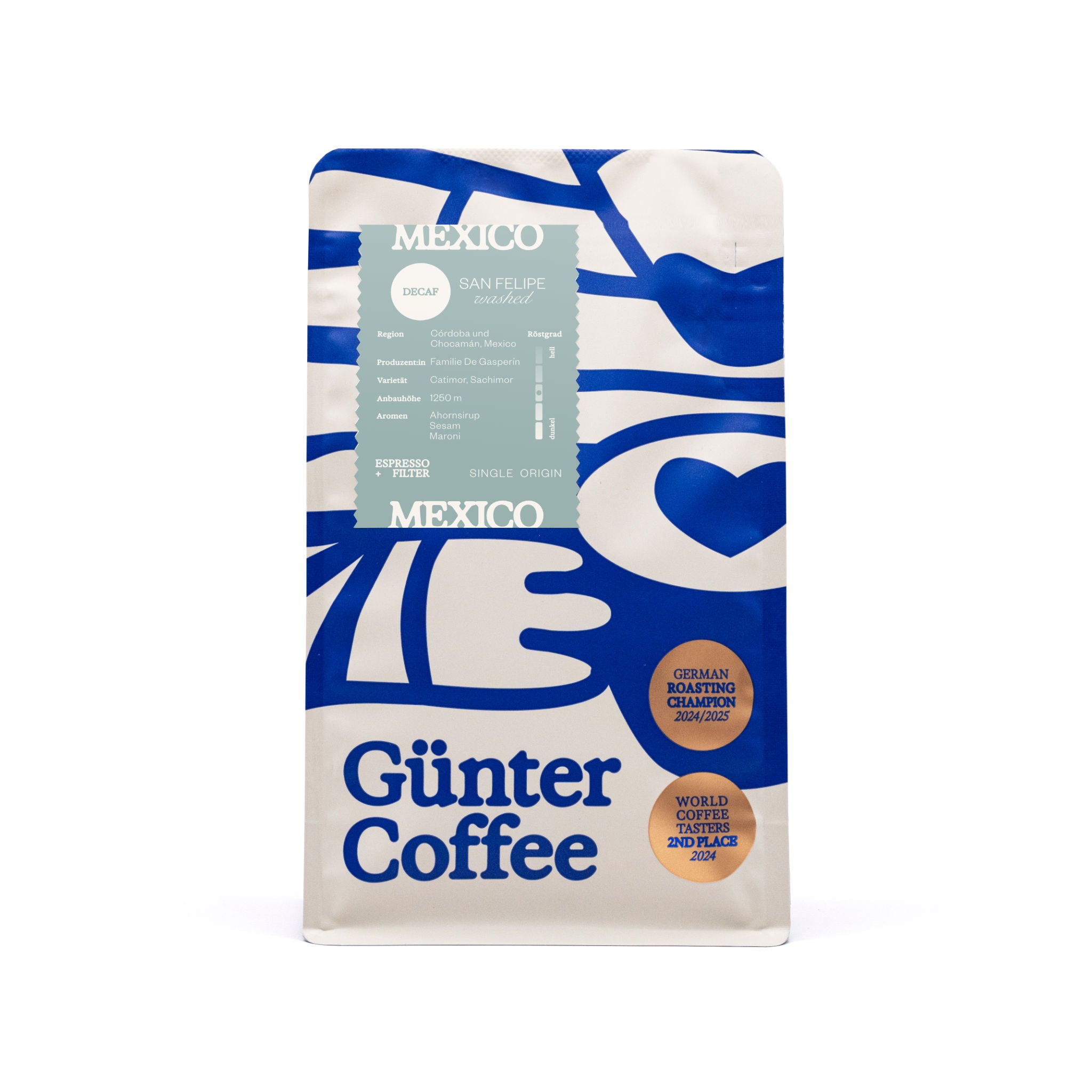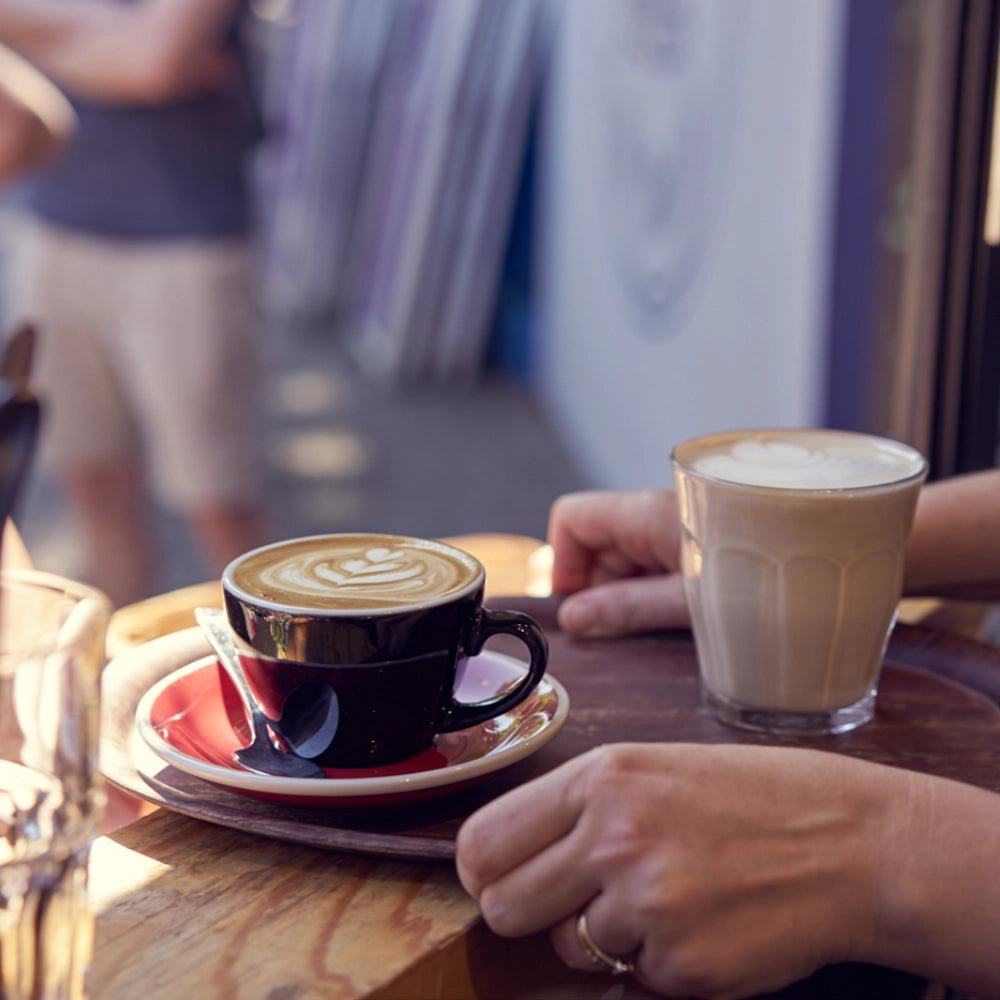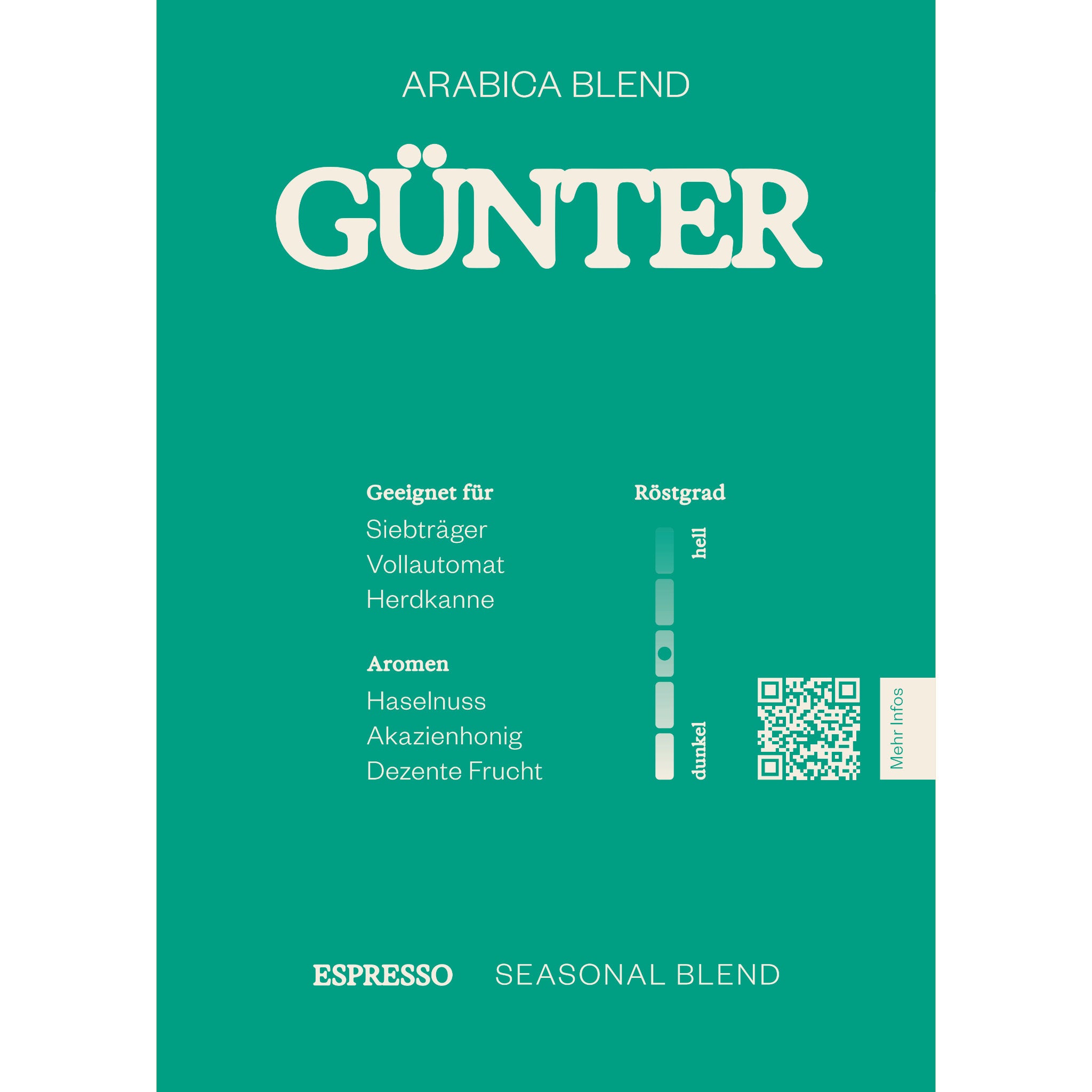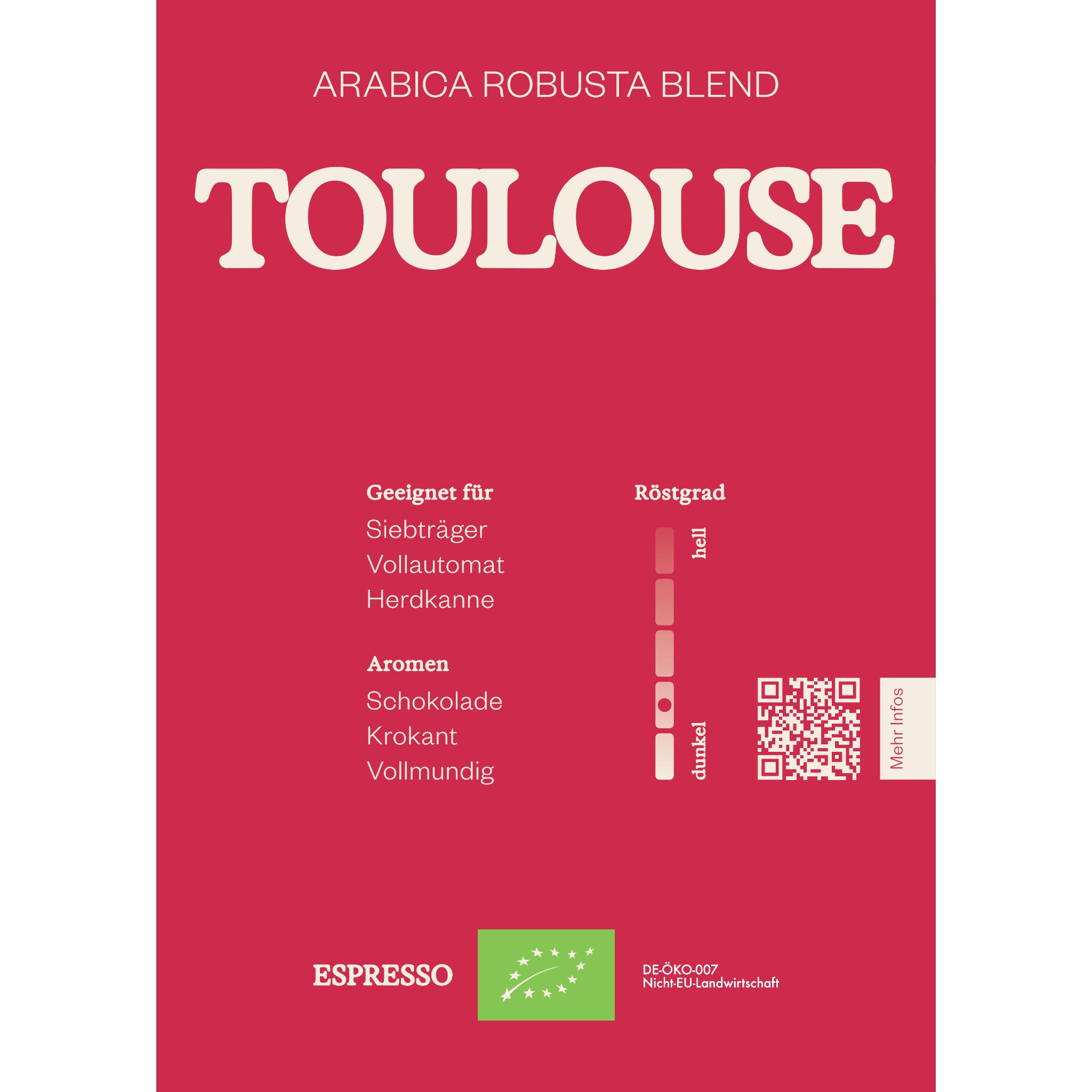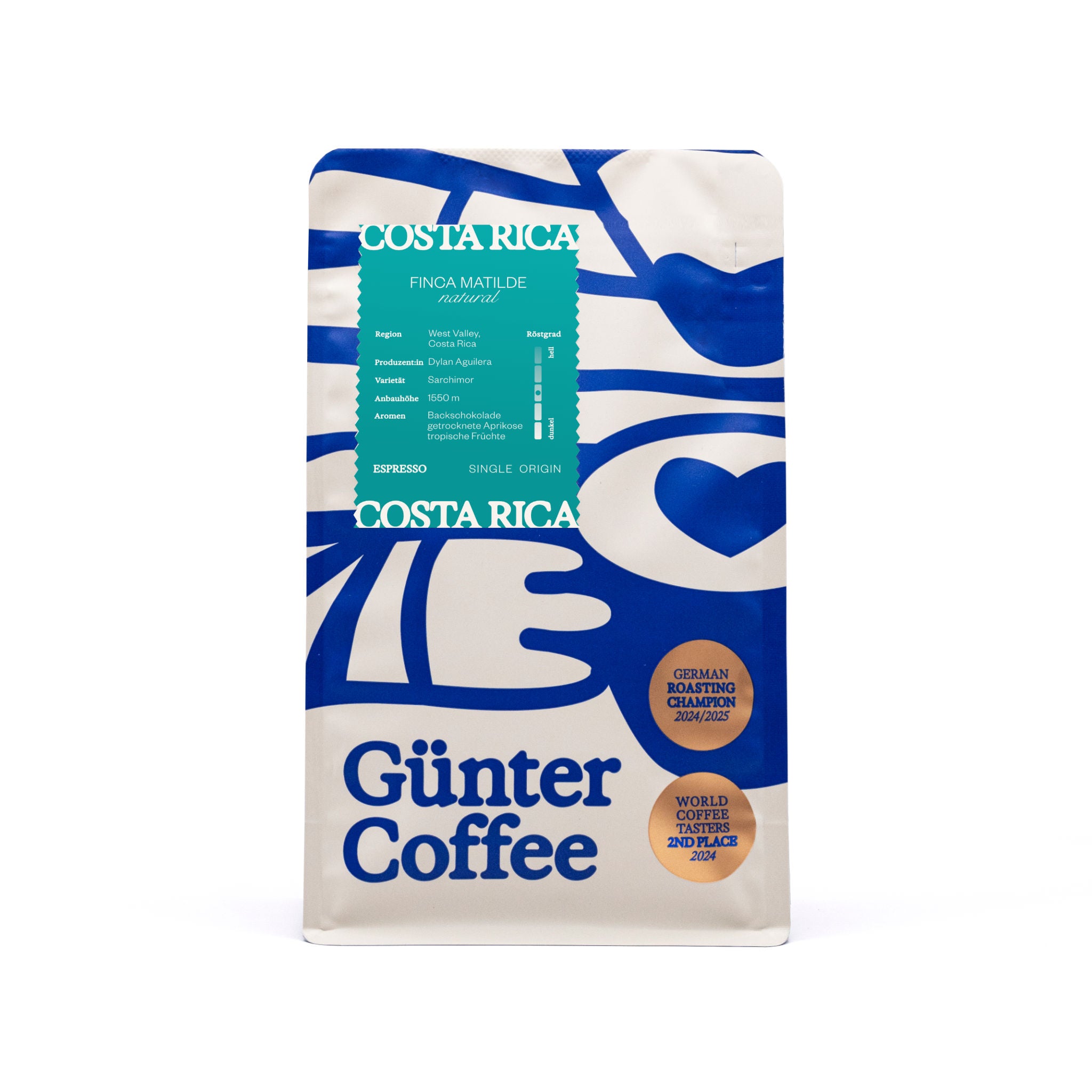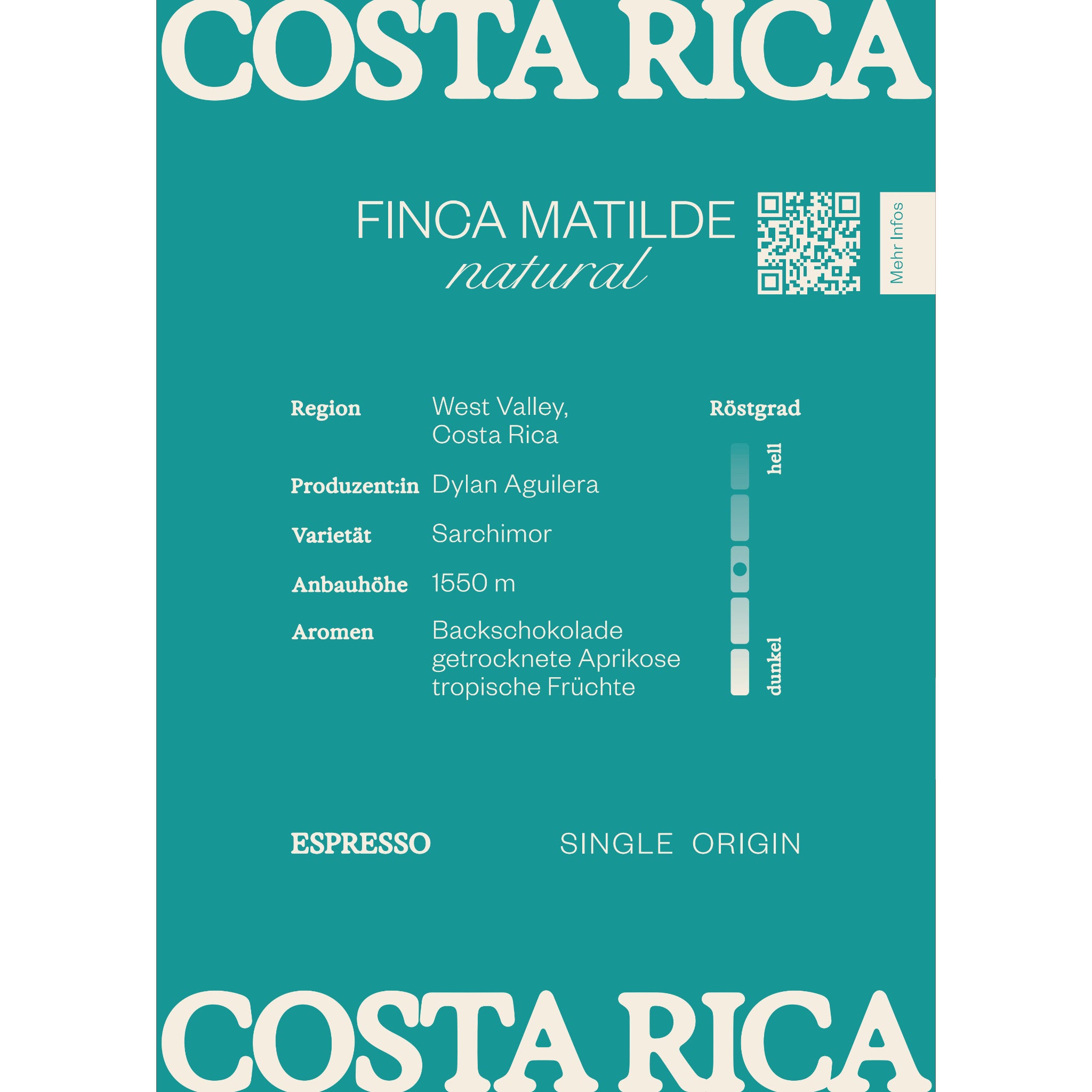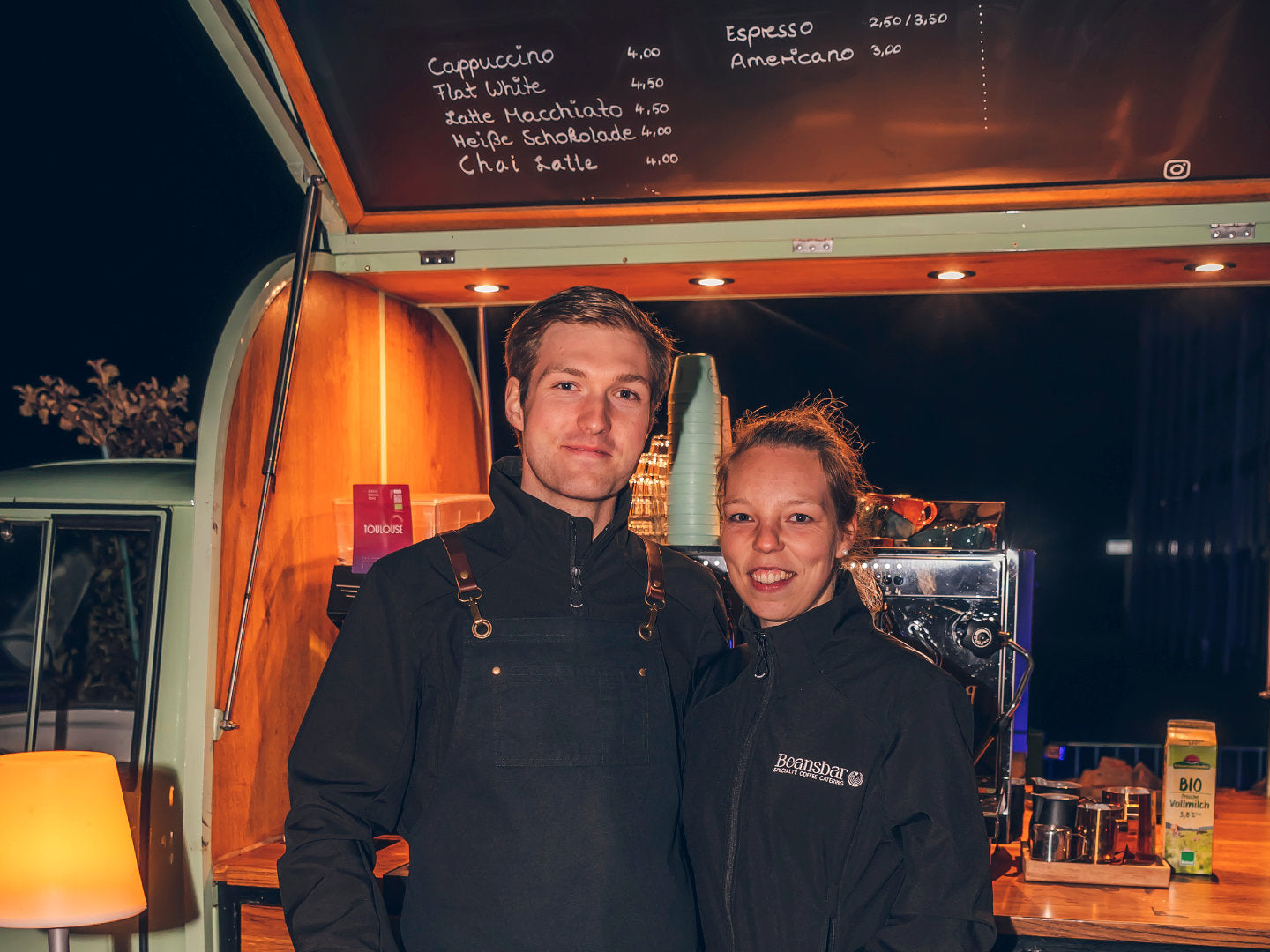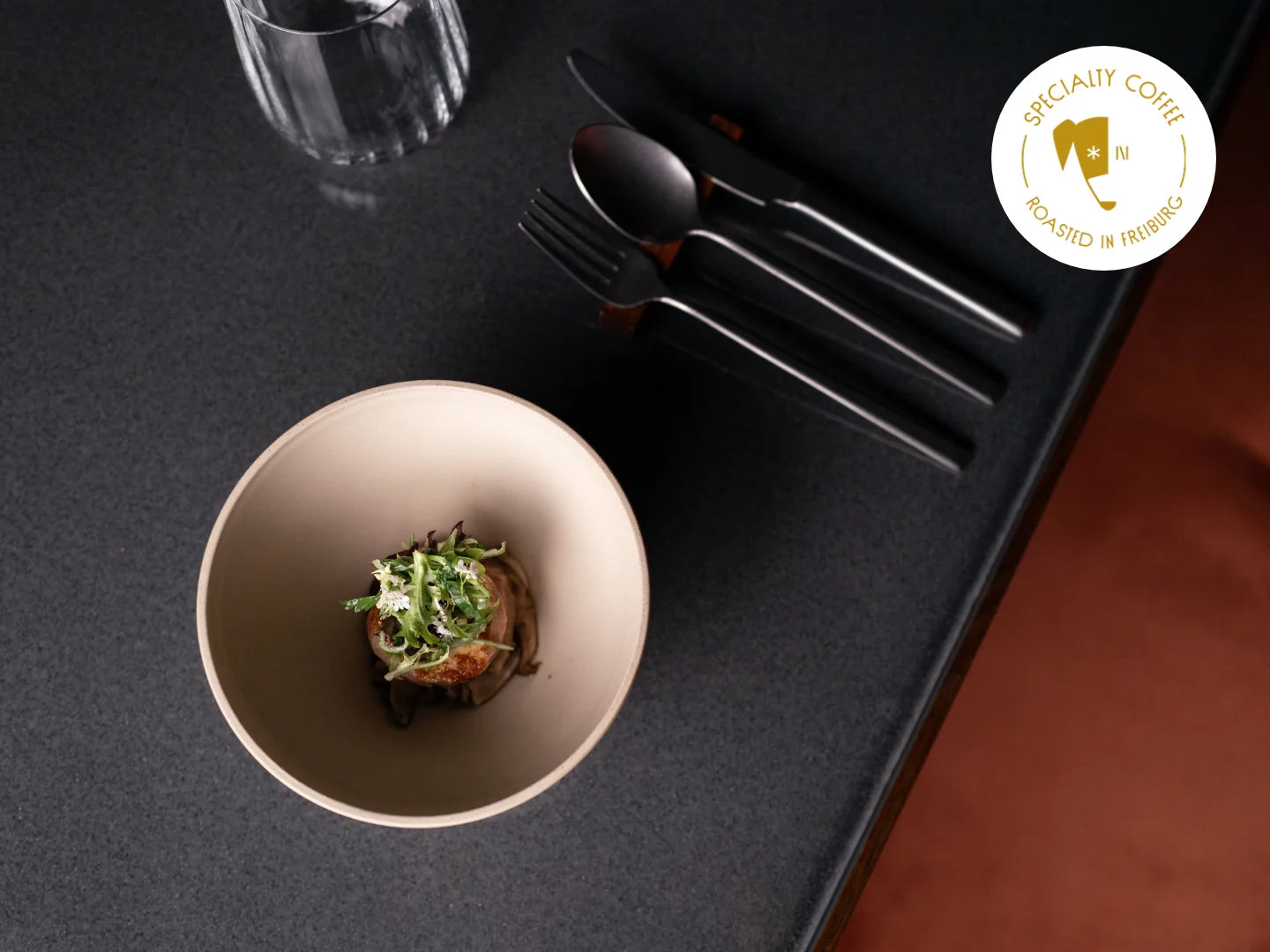Organically grown coffee beans are hard to find in the German specialty coffee scene in 2013. Torsten and Rainer want to change that and found the Indie Roasters in the same year. At this time, Rainer already had business relationships in India and was looking for organically certified coffee farmers there. A little later, the two imported their first container with 8 tons of organic green coffee, which arrived somewhat late in the port of Hamburg in December 2013. In the meantime, Torsten attends roasting and sensory seminars and works for a newly founded organic coffee roasting company, which is based in an old bakery in Salzkotten, Germany. Their deal: He helps set up the roastery and in return is allowed to use the production facility and warehouse for the Indie Roasters project.
The Indie Roasters project is taking shape
At the beginning of 2014, Anne Gerulat joins the team and becomes part of the business. Together with Torsten, she continues to develop the vision of the organic coffee roasting company. The two of them create a business plan, work on the roasting profiles and set up the corporate design and their online shop. In October of the same year, they present their brand at an organic trade fair for the first time. This all happened on the side because Torsten still works at the coffee roasting company and Anne works in a shop for espresso machines for a wholesale company where she earns her money full-time.
It soon becomes clear that the Indie Roasters need a new production facility. The search takes them to Bielefeld-Senne, Germany, where they find a suitable property at the end of the year, which is still the location of the Indie Roasters today. They roasted their first coffee beans there in mid-2015. Anne continues to work part-time in the espresso machine wholesale business until 2019. “During this time, I worked intensively on planning and implementing training events and was able to make many contacts in the coffee scene and learn a lot about coffee myself. “That helped a lot,” she tells us. Rainer leaves the project in 2017.
That's why Indie Roasters rely on direct imports
Anne and Torsten do not want to make any compromises when importing the green coffee that the Indie Roasters process. While roasters are always keen to emphasize that they are acting socially and ecologically responsibly in the wake of the third wave of coffee, the Indies want to take matters into their own hands. Instead of relying on the promises of others, they take care of the coffee import themselves. This is associated with considerable risks, as you have to pre-finance the green coffee for up to a year and a half. “This means that we have to pay enormous attention to our liquidity. Our funds and those of our green coffee customers are tied up in the pre-financing of green coffee. Since the period of up to one and a half years is very long, there are always difficulties with price and quantity communication," explains Anne and continues: "We want to produce coffee that is good for everyone. For the farmers in the origin, for nature and for the coffee drinkers everywhere.”
Anne takes care of communication with green coffee customers like us, all office matters and imports. She also travels to India at least once a year. Torsten takes care of the roasting and the employees in Bielefeld.
This is how the Indie Roasters select their green coffees for import
Before Anne and Torsten import new coffees, they check whether they fit their flavor profiles. “For this we are working with the cuptaster Ajay from India,” says Anne and explains: “For Canephora we are fans of the old Indian varieties Old Paradenia/S 274, but CxR also tastes great. When it comes to Arabicas, we go by the profile. However, many farms have a mix of varieties because farmers have planted different varieties over the years. Of course, this does not apply to microlots, as they are picked as pure varieties and specially processed, for example as anaerobic natural.”
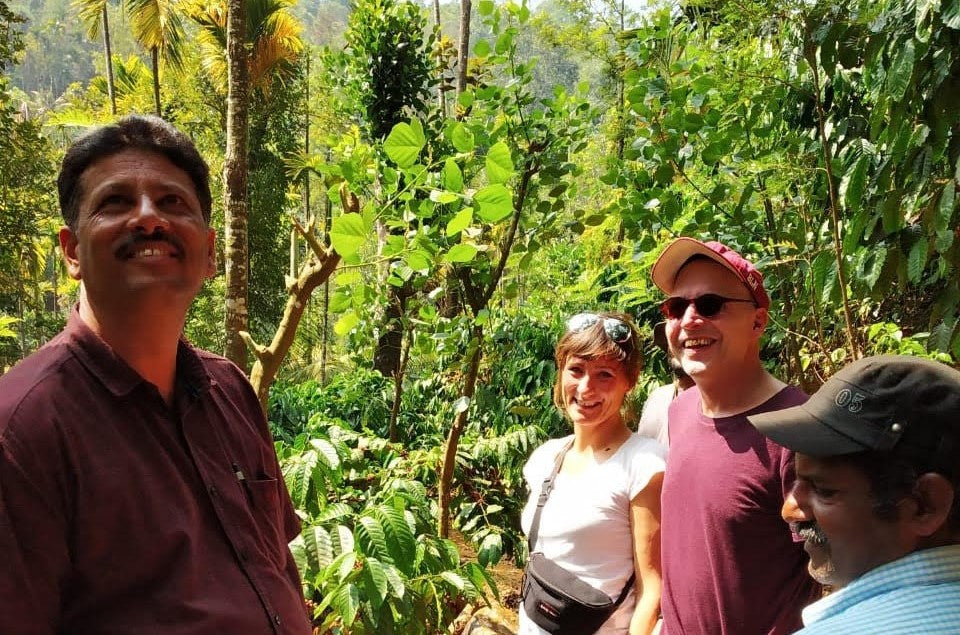
Anne and Torsten on a coffee farm in India.
After processing and a short maturation period in the farm or cooperative warehouse, the green coffees are transported to so-called curing works for the final processing steps. There the beans are peeled from their parchment skin, cleaned, polished, sorted and packed into so-called Ecotact and jute bags. The coffee bags are then loaded into containers and sealed to begin their journey to importers around the world. The Indie Roasters work with a logistics service provider who brings the sealed containers from the port of Hamburg to Bielefeld for them. Here they then take care of the necessary initial inspection of the green coffee into the EU.
More social and ecological awareness for the specialty scene
“In the specialty coffee scene, sustainable cultivation and people’s working conditions should play a greater role,” says Anne and complains: “If you go to coffee festivals and events, you get the impression that it’s almost exclusively about taste, varieties and which fancy types of processing are possible. Hardly anyone ever talks about organic coffee, working conditions or the implications of climate change. Too often you get the feeling that these topics are just seen as marketing add-ons. It would be great if these played a larger role in the purchasing decisions of roasters and their customers.”
Climate change is increasingly causing crop failures. This often threatens the existence of the farmers in the countries of origin. These effects can be partially offset through pre-financing, but in the long term other solutions will also be necessary. In our interview, for example, Anne suggests reserve funds that could be supported by roasters and customers to absorb the effects of increasing crop failures. “ In view of climate change, organic farming should be promoted more so that more CO2 can be stored in the soil. If roasters increasingly opt for organically grown coffees, the effects of climate change can be slowed down,” explains Anne.
Another challenge for the coming years will be the regulations against deforestation adopted by the EU (code 2023/1115). Implementation is scheduled to take place from December 2024 and there are currently no precise guidelines on how to provide evidence of deforestation-free products. “We think the regulations are a step in the right direction with regard to transparency in supply chains and the protection of forests and hope that the documentation and proof obligations placed on us will be designed in such a way that they can also be managed by smaller importers,” says Anne.
Approaches for a fair and sustainable coffee trade
The Indie Roasters see direct import and their own presence in the growing countries as a better alternative to “social” labels such as Fair Trade and Co. While they think their basic idea is correct, in practice it turns out that this is still not enough for the end customer Transparency is given. If only the negotiated minimum prices are paid and you only rely on the label, that is problematic. These prices are not very dynamic compared to general price increases and do not provide any traceability regarding the actual remuneration of the farmers. It can happen that only minimum prices are paid instead of benefiting from price increases on the market.
We have been working with Anne and Torsten from Indie Roasters since 2020 and are pre-financing Bio-Robusta from India with them and other roasters. We are proud to be able to contribute to a more socially and ecologically sustainable coffee supply chain and thank you for the valuable insights.

